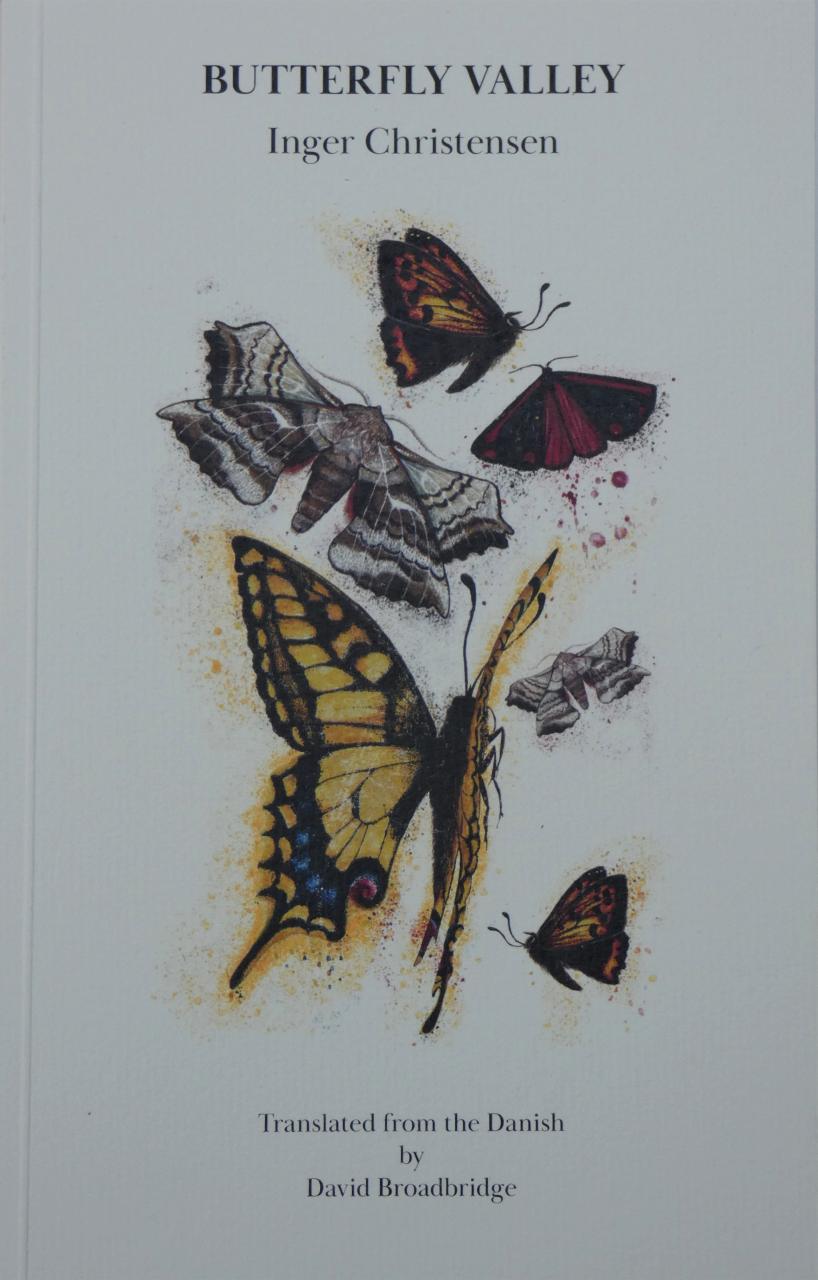Inger Christensen, translated from the original Danish by David Broadbridge
Privately published and available in a signed and numbered limited edition of 100 copies. Copies can be purchased for £10.00 inc. P&P from davidbroadbridge@hotmail.co.uk
2021
Reviewed by John Tennent
This series of poems was first published in 1991 by the late Inger Christensen (1935-2009), an eminent and accomplished Danish poet, novelist, playwright and essayist. I am rather in awe of translation; not a question of simple translation of words using Google, but the surely daunting task requiring intimate knowledge of two languages in addition to a sensitivity and feel for the work the translator undertakes.A translation can be crude or sophisticated – and there is no definitive answer. For example, Clive James’ 2013 translation of Dante, where the beginning of canto 3, at the gates of Hell, the declaration widely known for many years as“Abandon all hope, you who enter here”, is freshly translated as“Forget your hopes. They were what brought you here”. Scholarly, but with a flash of Clive James!
David Broadbridge’s work allows no such luxury of a generous interpretation, although he has the advantage of it being a good deal shorter than the Divine Comedy. It is the structure that makes it more confined. These verses are not limericks, or doggerel, but sonnets of exceptional quality requiring sensitivity in translation as well as linguistic competence. As Broadbridge himself declares in the short introduction, quoting Seamus Heaney: “… ‘It is one thing to find lexical meanings for the words and to have some feel for how the metre might go, but it is quite another thing to find the tuning-fork that will give you the note and pitch for the overall music of the work’. With this in mind, my translation is an attempt at impersonation – to make Inger Christensen sound like herself in English.”.
Each sonnet has a formal rhyming structure, slightly fluid in places, but the additional challenge for Christensen – and more so for her translator – is that the last line of each is the first line of the next, until the final sonnet which, astonishingly, comprises the first line of each of the previous 14 sonnets, in sequence. The whole is not a gimmick. It is a thoughtful, restful and inspiring series of beautifully constructed poems. Clever too. Certainly clever. The names of numerous butterflies and some moths do appear in these lines, but they are in some way peripheral, serving to introduce and to illustrate deeper issues … of summer, of beauty, of humanity.
There is an issue with the pages; printed on high grade card, they come away from the binding at the slightest excuse – actually, I didn’t mind; it made looking at one page at a time very easy. Without any knowledge of the original, or of the Danish language, there is nothing for most readers (including me) to compare it with. But as a poetic work, with an inkling of how very difficult this must have been, I looked for flaws in the content, for weakness, and felt ashamed. Inger Christensen has the credit from the original work, but I suspect David Broadbridge’s beautifully crafted translation has done her justice. Perfection is an elusive goal, but I have a curious feeling that this might come close.To a lover of poetry, and to a Lepidopterist, this is a treat.
They are rising up, the earth’s butterflies
pigments from the warm body of the ground,
cinnabar, ochre, phosphor, gold, they rise
a swarm of basic elements abound.


